Search
Remove Ads
Advertisement
Summary 
Loading AI-generated summary based on World History Encyclopedia articles ...
Search Results

Definition
Hallstatt Culture
The Hallstatt culture is named after the site of that name in Austria and it flourished in central Europe from the 8th to 6th century BCE. The full period of its presence extends from c. 1200 to c. 450 BCE - from the Late Bronze Age to the...
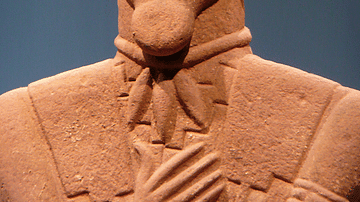
Definition
La Tène Culture
The La Tène culture (c. 450 - c. 50 BCE) is named after the site of that name on the northern shores of Lake Neuchâtel in Switzerland. It replaced the earlier Hallstatt culture (c. 1200 - c. 450 BCE) as the dominant culture of central Europe...

Image
Map of the The Hallstatt Culture
A map illustrating the spread of the Hallstatt culture, a predominant European Late Bronze and Early Iron Age culture from the 12th to 5th centuries BCE. It is generally accepted as a proto-Celtic culture. It is named after Hallstatt, an...

Definition
Ancient Celts
The ancient Celts were various tribal groups living in parts of western and central Europe in the Late Bronze Age and through the Iron Age (c. 700 BCE to c. 400 CE). Given the name Celts by ancient writers, these tribes and their culture...
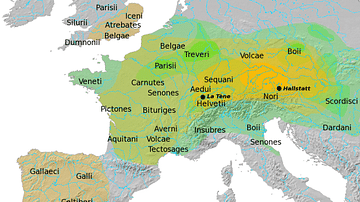
Image
Map of Hallstatt & La Tène Cultures
An overview map of the Hallstatt culture (c. 1200 - c. 450 BCE) - marked in yellow, and the La Tène culture (c. 450 - c. 50 BCE) - marked in green.
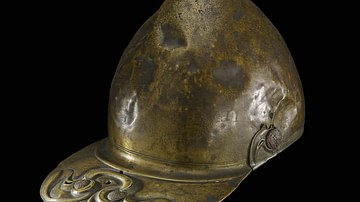
Definition
Celtic Warfare
The Celts were a linguistic group which spanned across a wide geographic area and included numerous cultures and ethnicities. Because of this fact, the traditions, practices, and lifestyles of Celtic-speaking peoples varied considerably...
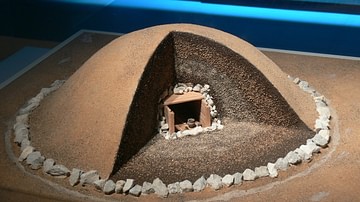
Image
Celtic Burial Mound Reconstruction, Hallstatt
A reconstruction of a Celtic burial mound from the Hallstatt culture of Austria and central Europe in the 1st millennium BCE. (German National Museum, Nuremberg)

Image
Reconstructions of Hallstatt Buildings
Reconstructions of Hallstatt Culture (c. 1200 - c. 450 BCE) buildings at the open-air museum at Mitterkirchen im Machland, Austria.
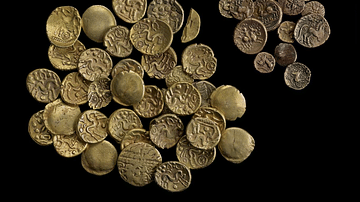
Article
Trade in Ancient Celtic Europe
Trade in raw materials and manufactured goods in ancient Celtic Europe was vibrant and far-reaching, particularly regarding the centre of the continent where there was a hub of well-established trade routes. As the Celts' territory expanded...
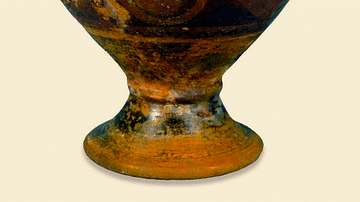
Definition
Ancient Celtic Pottery
The pottery of the ancient Celts, although produced over great distances in space and time, shares several common features no matter where it was made, illustrating that there was contact between people living as far apart as Brittany and...